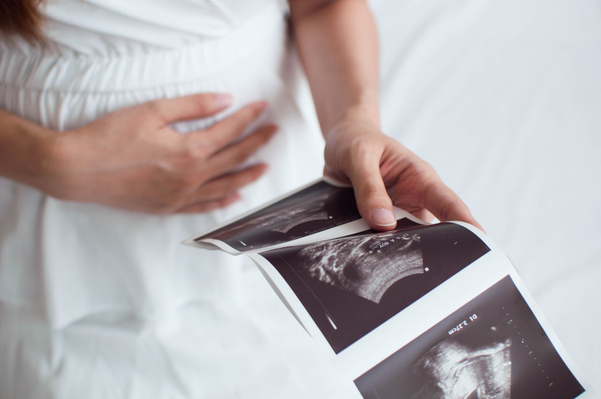- Patients Patients
Reproductive Genetics Testing
Patient Resources
Cost & Billing
- Providers Providers
- Genetic Counseling
- Login Login
- Estimate My Cost

Your partner for preconception, pregnancy Testing and pediatric care
Pregnancy
Whether you want to order a cutting-edge genetic test or routine women’s health testing, you can rely on Labcorp to enhance your patient’s pregnancy experience and support your laboratory needs every step of the way.
Prenatal testing comprises far more than just routine options.
Labcorp provides a full continuum of care through routine testing, screening and diagnostic assays, genetic counseling services and expert support in every stage of the pregnancy journey and beyond.
ACOG, SMFM, ACMG and CDC have developed guidelines for laboratory testing in pregnancy. These recommended tests can identify conditions that may increase the risk for both fetal and maternal complications. Identification of concerning lab results can lead to effective treatment, intervention, education and improved pregnancy outcomes.
Do your patients have questions about NIPS (NIPT)?
As your partner, we created a brief video to help you explain this screening test, what the results may indicate and the importance of follow-up diagnostic testing if clinically indicated.
Initial Screening
Screening for certain diseases during early pregnancy has led to improved health in mothers and newborns. We offer laboratory testing aligned with current clinical guidelines and recommendations. It also includes reflex testing, supporting timely and quality care during pregnancy.
To protect all pregnant women and infants the CDC recommends that all pregnant women get tested for HIV, hepatitis B virus (HBV), hepatitis C virus (HCV) and syphilis during each pregnancy.1

Prenatal Genetic Screening
Carrier Screening
The way many think about carrier screening is changing.
The American College of Obstetricians and Gynecologists (ACOG) states that carrier screening for spinal muscular atrophy (SMA), in addition to cystic fibrosis (CF), “should be offered to all women who are considering pregnancy or are currently pregnant.”2
In a recent Practice Resource, ACMG recommends that “carrier screening paradigms should be ethnic and population neutral and more inclusive of diverse populations...”3 In addition, carrier screening for a broad panel of conditions should be offered to all patients who are pregnant or considering pregnancy.
See our carrier screening options
Noninvasive Prenatal Screening (NIPS/NIPT)
Whether you are managing routine or high-risk pregnancies, Labcorp’s MaterniT® NIPS (NIPT) performs in key areas that help you deliver fast, reliable and effective prenatal screening results. Pregnant patients present in many ways and may need different insights to the health of their baby, which is why we offer different capabilities and choice of NIPS (NIPT) to suit the specific needs of your patients and your practice. Professional societies like ACOG, ACMG, and SMFM have issued guidelines on NIPS (NIPT) as a screening option for all pregnant women.

Serum Screening
Prenatal or maternal serum screening is another option for non-invasive screening to help understand the health of a baby while it is developing. We offer several options for serum screening in the first and second trimester to assess risk for a range of conditions, including Down syndrome, trisomy 18 and open neural tube defects.

Preeclampsia screening across all pregnancy trimesters
Labcorp’s first trimester preeclampsia screening test is a blood-based screening test suitable for any pregnant patient between 11-14 weeks’ gestation. It assesses a combination of biochemical and biophysical markers, including mean arterial pressure (MAP) and uterine artery pulsatility index (UtAPI), and uses a proprietary algorithm to identify the risk of developing preeclampsia later in pregnancy at <34 weeks’ gestation.
Labcorp’s second and third trimester preeclampsia test uses a blood specimen drawn between 23 and 34.9 weeks’ gestation. The screening test uses two biochemical markers (sFlt-1 and PlGF) to assess the risk of preeclampsia progressing to severe symptoms within the subsequent two weeks. This test is FDA cleared for use in hospitalized patients.

Prenatal and Pediatric Diagnostics
When you and your patient need diagnostic testing, either for routine prenatal diagnosis, confirmation of NIPS (NIPT) results, pregnancy loss, follow-up of a high-risk pregnancy, or diagnostic testing of a fetus or neonate when an inherited genetic disorder is suspected, we can help deliver insights at any stage.

Services
Contact us to learn more about Labcorp's comprehensive pregnancy testing and services
References:
- Centers for Disease Control and Prevention. Overview of HIV, viral hepatitis, STD, and TB during pregnancy. Accessed July 15, 2022. https://www.cdc.gov/nchhstp/pregnancy/overview.html.
- Carrier Screening for Genetic Conditions. Committee Opinion No. 691. American College of Obstetricians and Gynecologists. Obstet Gynecol 2017;129:e41–55.
- Gregg, et al. Screening for autosomal recessive and X-linked conditions during pregnancy and preconception: a practice resource of the American College of Medical Genetics and Genomics (ACMG). Genetics in Medicine 2021; https://doi.org/10.1038/s41436-021-01203-z.
- Thadhani R, Lemoine E, Rana S, et al. Circulating Angiogenic Factor Levels in Hypertensive Disorders of Pregnancy. NEJM Evid. 2022;1(12). Doi:10.1056/EVIDoa2200161




